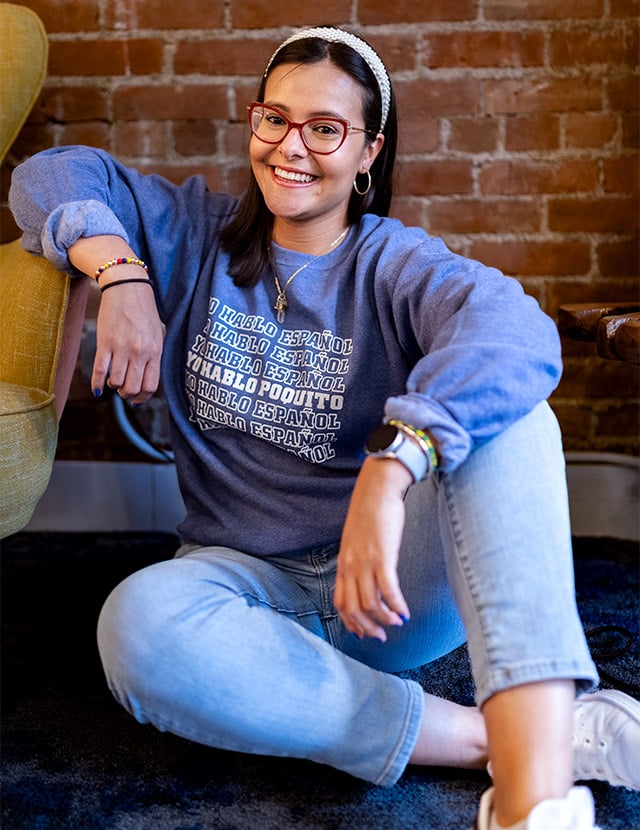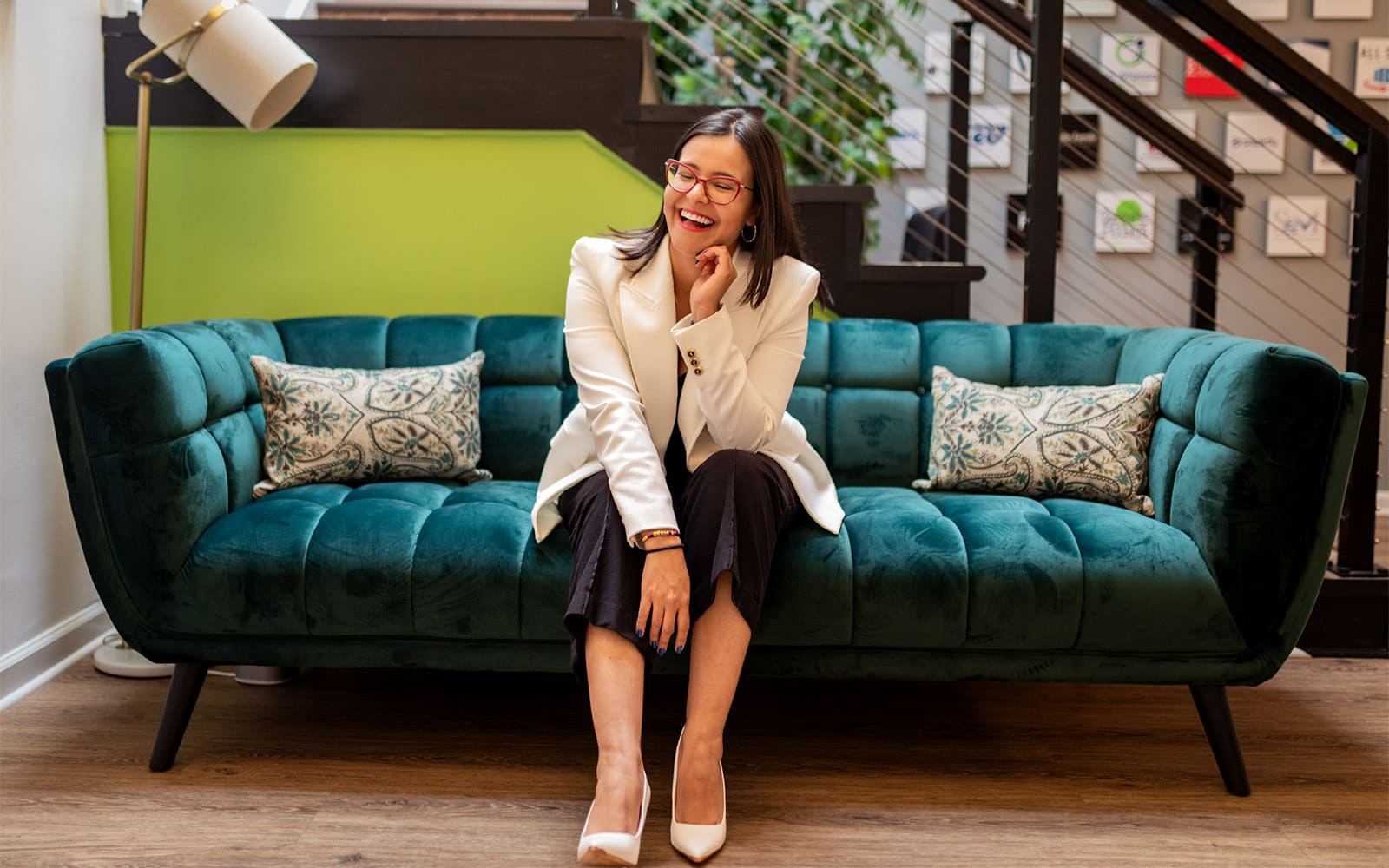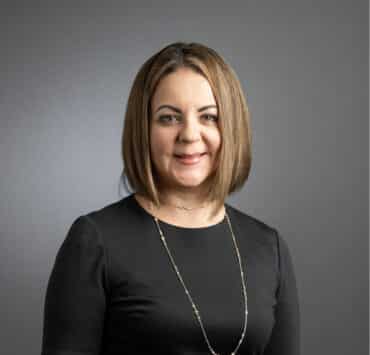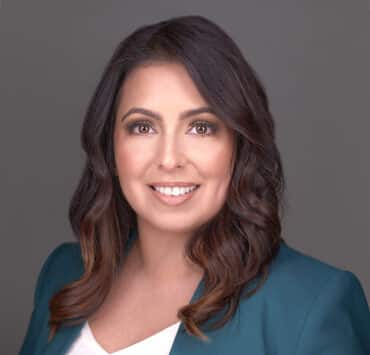|
Getting your Trinity Audio player ready...
|
Juliana Londoño is a licensed mental health therapist in New Jersey who started her own business to focus on the intersectionality of mental health and the Latino/BIPOC communities.
But decades ago, she didn’t know that it was possible.
Growing up as the product of a single-parent household in Paterson, New Jersey, she had never seen a therapist, didn’t know she could pursue the profession, and didn’t get exposed to psychology until college. Even as a graduate student, she was unsure whether she belonged in the field.
“I’d look around my classrooms to find classmates and professors who didn’t look like me. I felt very isolated and in my own bubble given my experience with immigration, as a first-generation college grad, and growing up as an only child raised by an incredible single mother,” the entrepreneur reflects. “It definitely felt like I wasn’t meant to be there. Many times, I wanted to run in the opposite direction.”

She needed to remind herself that she belonged, and a quote stuck with her: “You may be first, but you won’t be the last.”
“That’s what got me through,” she says. “It was a matter of getting to the finish line and creating a ladder for generations to come.”
Since then, Londoño has grown into the kind of mental health professional she didn’t have exposure to growing up. As the founder and CEO of Juliana Londoño LLC, she aims to raise awareness, provide resources, and develop connections through workshops, trainings, and speaking engagements in diverse settings.
She’s outspoken on the barriers Latinos face as it relates to mental healthcare, hoping her voice can be a catalyst for change. One challenge is a lack of Spanish-speaking mental health professionals in the US, a factor the American Psychological Association says limits access to care. Londoño says that isn’t the only thing that might deter Latinos from getting the help they need.
Her business aims to fill that Spanish-speaking gap, but the challenge is the legal and regulatory considerations. “It’s very challenging when I get calls and requests from folks in California, Texas, and Florida, and I clinically cannot meet with them since they’re in another state,” she says.
“It was a matter of getting to the finish line and creating a ladder for generations to come.”
Juliana Londoño
Then, there is the factor that insurance and managed care are a business. “While I’d like to think it’s patient first or client first, it’s often profit first,” Londoño says. “They have the power to say you have health insurance, but you have to pay out of pocket for mental health services.
“I hope to create awareness that there’s so much work to be done in these areas,” she adds, “because the few of us that do speak Spanish and want to help these communities are faced with these roadblocks and are prevented from having even greater reach.”
While it’s often hard to be optimistic when considering those challenges, she’s encouraged by her work as a mental health therapist at Wholehearted Healing Collective. The group provides an array of services including traditional counseling, support groups, and community-based offerings. Recently, she’s been helping her young clients navigate life at school post-pandemic and helping clients of all ages unpack trauma from the pandemic.

“We all experience trauma with COVID, and researchers are still gathering data on what trauma looked like on a global scale,” she says. “What we know is that it’ll be a textbook on its own.”
Londoño describes the journey she goes on with her clients in those areas to “planting a seed.”
“The client waters that seed when they leave the office, and we check back in with that seed when they’re in therapy,” she explains. “Slowly but surely it starts to bud and next thing you know, you get a flower and we’re on to the next seed.”
Londoño has advice for aspiring Latino mental health professionals who find themselves feeling as isolated as she did on her road to success. They should understand that there will be difficult times, but they need to remember that they earned the right to be there.
“You might be the only brown person that speaks another language in those environments but embrace that and push through.”
Juliana Londoño
“You might be the only brown person that speaks another language in those environments but embrace that and push through,” she says. “There also will be a lot of clinical hours you need to complete, and many of them might not be paid. But as you work through them, know your worth and that there’s a finish line.”
Once those professionals cross it and successfully enter the mental health field, Londoño admits that the challenges won’t stop there. That’s why they should focus on always being their authentic selves.
“Remind yourself that you’re human first and a therapist second or third,” she advises. “I make mistakes, I mess up, I break stuff, I’m good at some things and not others. But I’m going to show up and bring everything I am and that allows me to connect with others.”

